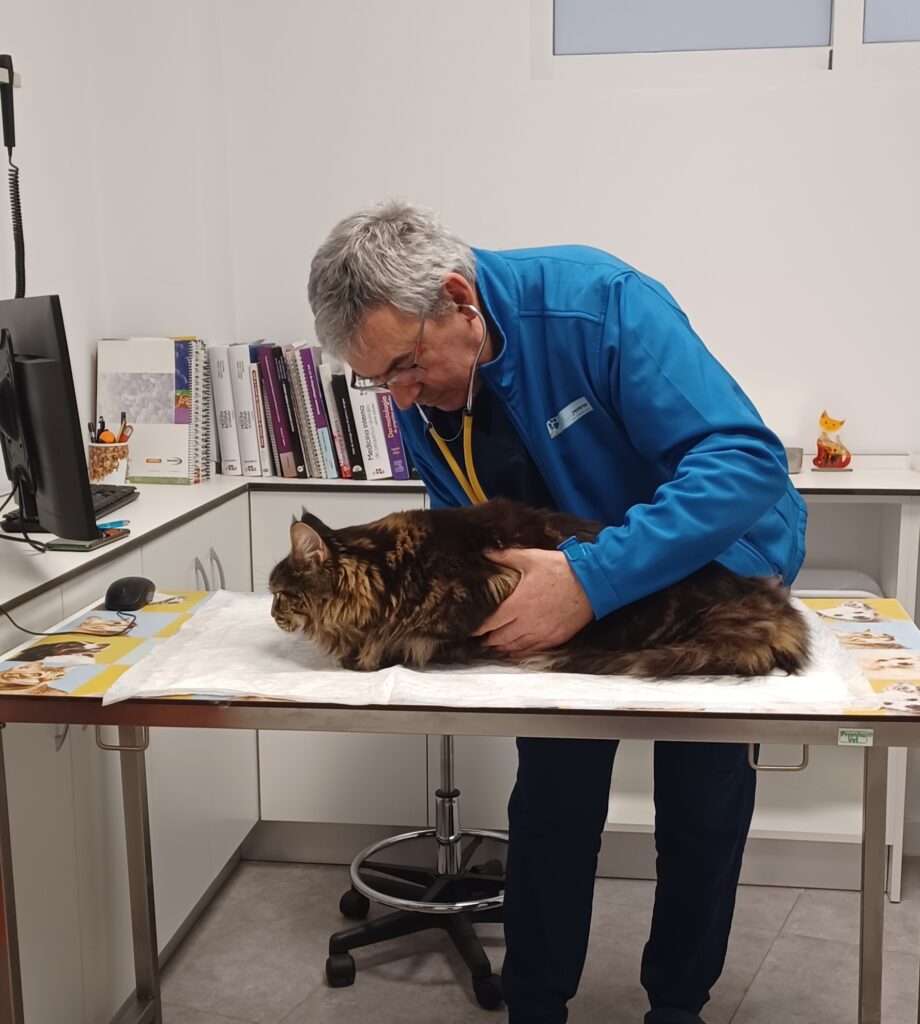FELINE ALIMENTARY LYMPHOMA
Description
It is the most common type of tumor of the gastrointestinal tract in cats, especially developing in older cats. It may be limited to intestinal and/or gastric infiltration or result in a combination of intestinal involvement, mesenteric lymph nodes, and hepatosplenic level. It can be classified into: – Low-grade Alimentary Lymphoma, which represents 50-80% of cases and more than 80% of these respond well to treatment and has long-lasting survival. Intermediate or high-grade Alimentary Lymphoma represents approximately 20% of cases and usually responds very well between 50-60%, having somewhat lower survival rates than those with low grade -granular lymphoma, represents 10% cases and the response to treatment is usually lower as well as their survival.
Symptoms
The animals arrive for consultation showing non-specific gastrointestinal signs such as weight loss, diarrhea and loss of appetite. In the case of low-grade alimentary lymphoma, nonspecific gastrointestinal signs occur with slow progression; it usually presents with moderate intestinal thickening and sometimes mild lymphodenopathy and organomegaly. In intermediate or high grade alimentary lymphoma, non-specific signs are shown as in the low grade, but vomiting and/or hematochezia may also be observed, acute clinical progression is present, gastric mass, mesenteric lymphodenopathy and organomegaly are usually observed.
When to consult
If your friend has chronic digestive disorders or weight loss, it is time to consult your veterinarian.
Causes
Although the actual cause is unknown, it is thought that low-grade lymphoma could be in "some cases" the evolution of chronic inflammation of the intestine IBD
complications
Diagnosis
To reach its diagnosis, it is necessary to evaluate the symptoms, a general examination, abdominal palpation and an ultrasound, which in this case is not always pathognomonic, but is of great help since the definitive diagnosis is often achieved through echo-guided cytology. Sometimes, as in the case of low-grade alimentary lymphoma, the definitive diagnosis is reached through an endoscopic biopsy or laparotomy; here cytology is not as representative as in other types. To obtain more information about the patient's current status in order to address the disease, it is recommended to perform other tests such as blood and urine analysis, a leukemia (FeLV) and immunodeficiency (FIV) test, and additional staging of the disease. through chest x-rays, peripheral lymph node aspiration, and bone marrow evaluation.
Treatment
Cats generally tolerate chemotherapy very well. The treatment will depend entirely on the type of alimentary lymphoma that the patient presents, but supportive treatment, nutritional support, good nutrition and supplementation with cobalamin are always important. In the case of intermediate or high grade alimentary lymphoma, surgery is considered in large lesions, obstruction and/or intestinal perforation.

